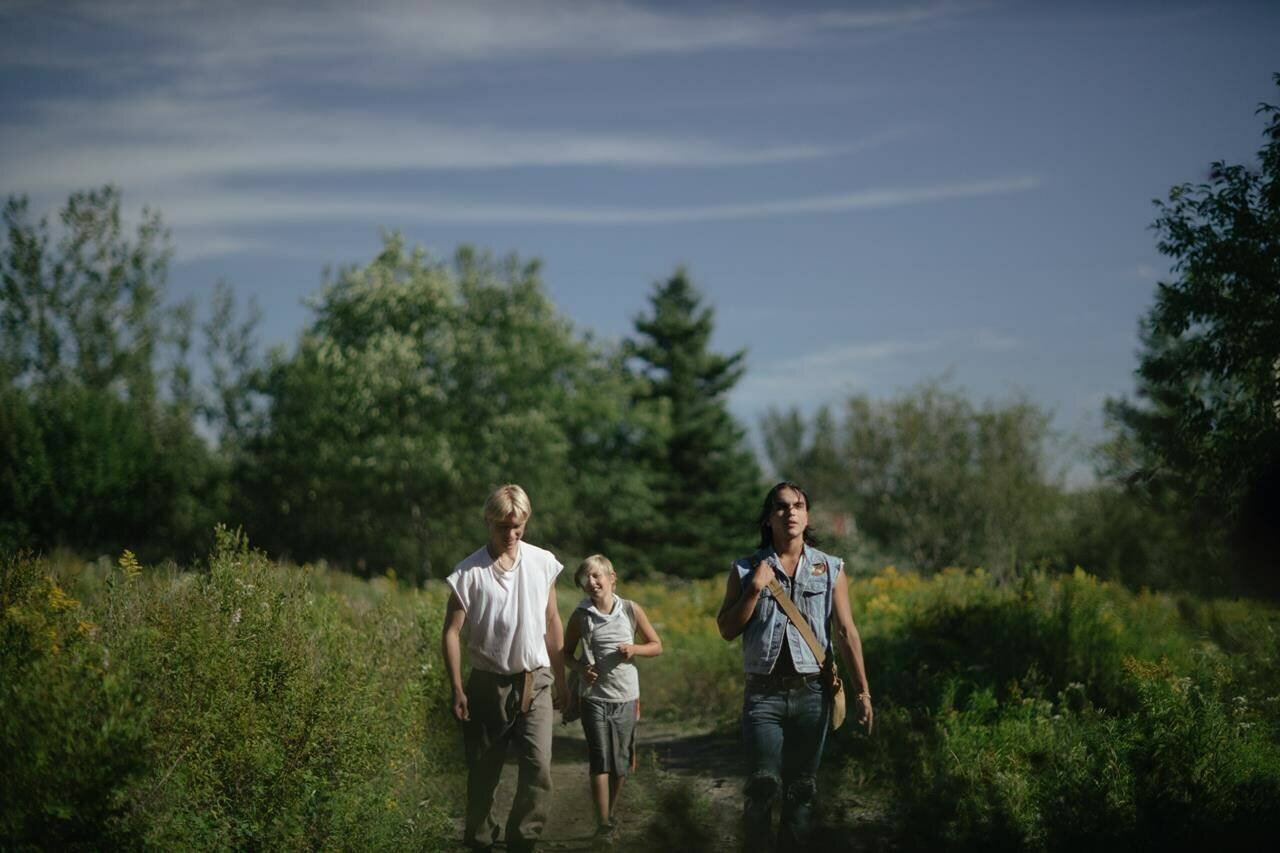'Wildhood' Review: A Canadian-Made Triumph A Decade In The Making [TIFF 2021]
Canadian cinema has always had an uphill road to climb, but this is especially true of films like ‘Wildhood’.
According to writer/director Bretten Hannam, their latest film, ‘Wildhood’ was ten years in the making. Hannam has made a relatively still fresh career, trying to tell queer and indigenous stories, as the director has gone on record as saying they have had struggles trying to discover their own identity. With Wildhood now screening for the 2021 Toronto International Film Festival. Drawing heavily from Hannam’s own aforementioned experiences and journey, Wildhood is a story of re-defining one’s family, rediscovering love, and recovering one’s sense of self.
Wildhood follows Link (Phillip Lewitski), a rebellious two-spirit teenager who spends most of his time caring for his younger brother Travis (Avery Winters-Anthony). The two brothers also live under the abusive watch of Link’s father, Arvin (Joel Thomas Hynes), until Link uncovers the truth about his mother, whom Arvin always claimed was dead. With Travis in tow, Link hits the open road in an attempt to find his birth mother and reclaim his Mi'kmaw heritage, embarking on a journey where bitter memories and angry confusion contrast with the gorgeous splendour of the Canadian East-Coast landscape.
As with the road trip genre, Travis and Link encounter some unique people, though the story wisely keeps that number low. There’s a travelling cake baker played by veteran actor Michael Greyeyes, but more important is the wandering dancer named Pasmay (Joshua Odjick). Just like Link and Travis, Pasmay has been wounded by life, and isn’t entirely sure where he’ll be going next. The three youths form a bond as they travel along, be it aimlessly or purposefully as the story progresses.
The film has a lot to say about topics which can be sensitive, even triggering, for some audience members to confront. There is the casual racism which the youths encounter, including from a store clerk who nonchalantly accuses Link of stealing without any proof, and then has the temerity to tell Link to calm down when he is rightly offended. The film also addresses Link’s sexual orientation; Link is not in denial, exactly, but it’s clear that living with Arvin has been toxic for his self-esteem and identity. Link’s journey is thus equally internal as it is external. We also learn of what Pasmay has endured, and what Link’s own mother was like. Whether in anger or in quiet pain, words are spoken which have the power to either break apart relationships or forge them together.
It is worth pointing out, though, that Wildhood never descends into melodrama. There are several scenes which, in a lesser director’s hands, would lead to predictable and clichéd moments. Instead, Hannam allows their characters to play out earnestly, as human beings might actually behave in the circumstances. In their own words, Hannam wrote Link as someone struggling to find out where he fits in. This question also applies to Travis and Pasmay, even as they help Link find out if his mother is still out there. Between the brilliant script written by Hannam, and the nuanced performances of everyone in the cast, the story never goes wrong, and remains grounded in ‘slice-of-life’ realism. The film is also made memorable by the skilful cinematography and the varied Indigenous music which makes up Wildhood’s soundtrack, including one track by acclaimed Maliseet musician Jeremy Dutcher.
Wildhood is a true gem of 2021’s TIFF; it skilfully tackles weighty subject matter without losing focus of its characters. It also pays tribute to the importance of a supportive family, no matter if it’s one’s family by blood, tribe, or choice.



